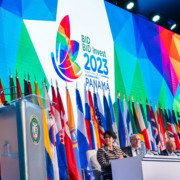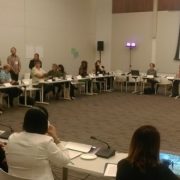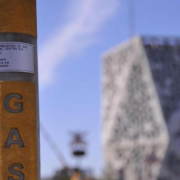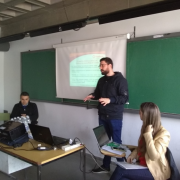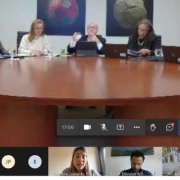We make comments and observations on the IDB’s Environmental and Social Policy Framework from a gender perspective
From Fundeps, together with the participation of some international civil society organizations, we sent the IDB a document with comments and observations on the Environmental and Social Policy Framework from a gender perspective.
“Below, we offer a google translate version of the original article in Spanish. This translation may not be accurate but serves as a general presentation of the article. For more accurate information, please switch to the Spanish version of the website. In addition, feel free to directly contact in English the person mentioned at the bottom of this article with regards to this topic”.
In December 2019, the Inter-American Development Bank -IDB- published the draft of the Environmental and Social Policy Framework (MPAS) in order to modernize its environmental and social policies. What does this MPAS mean? These are the requirements in environmental and social policy that the Bank or the Bank’s borrowers must meet when carrying out a project. In this statement, the Bank maintains a commitment to environmental and social sustainability, translated into a series of requirements and recommendations ordered in ten Performance Standards to be met in each project.
In January 2020, on-site and virtual public consultations began, in which Fundeps participated by presenting a review of what was proposed in social and environmental safeguards policies. This month, we led a document with specific comments and observations to Rule 9, on Gender Equality, and its lack of mainstreaming towards the rest of the MPAS Rules. This document was formulated together with another group of NGOs that adhered to the recommendations and together it was presented to the IDB. This work involved analyzing the entire draft of the Framework from a gender perspective and also contrasting it with previous gender policies published by the Bank.
As mentioned, the first shortcoming identified is the loss of mainstreaming of gender policy in project financing requirements. Taking into account that such projects directly and indirectly affect local communities, we demand that the Gender Equality Standard dialogue with other approaches such as race, ethnicity, class, age, religion, profession / activities, geographic location, among others. In other words, we demand that the problems be addressed from an intersectional vision, recognizing the coexistence of different vulnerabilities.
Regarding its conceptualization of gender equality, some inequalities of women with respect to men are mentioned, along with possible violence against trans people, so its approach in relation to LGBTTTIQ + people is scarce and superficial. Although it refers to ‘gender empowerment’ instead of ‘women empowerment’, there is no specific mention of gender, which manifests the reproduction of a binary, exclusive and regressive approach in terms of human rights. Furthermore, this means -not specifically mentioning the genres- the lack of incorporation of LGBTTTIQ people in the requirements to be met by the projects.
In its implementation measures, we note that the approaches proposed by the international human rights treaties for girls, adolescents, women, and LGBTTTIQ + people are not incorporated. On the other hand, the implementation measures required of borrowers do not include a proactive policy to advance on gender equality, as it was included in previous Bank gender policies. We continue with a preventive policy, although we identified an absence of a gender perspective in the design of strategies to mitigate and prevent violence, discrimination and inequalities.
In order to materialize progress regarding human rights in IDB-financed projects, we raise the need to strengthen the Bank’s commitment to the gender perspective, such as incorporating it at the internal level of its organizational structure. Taking into account the Bank’s ability to generate public policies through its choice of financing, we conclude that it must develop robust frameworks, operational policies, and accountability mechanisms that incorporate the gender perspective cross-sectionally and ensure the informed participation of affected people at all stages of all projects financed and undertaken by the Bank.
More information
- Comments and observations on the draft IDB Environmental and Social Policy Framework from a Gender perspective – Fundeps
- We participate in consultations of the new IDB Environmental and Social Policy Framework – Fundeps
- Public consultations on the IDB’s new environmental and social policy begin – Fundeps
- Observations on the draft of the IDB Invest Environmental and Social Sustainability Policy from a sensitive perspective on gender – Fundeps
- Draft Environmental and Social Policy Framework (MPAS) – IDB
- Gender and Diversity – IDB
Author
Mariel Pastor
Contact
Cecilia Bustos Moreschi, cecilia.bustos.moreschi@fundeps.org
Gonzalo Roza, gon.roza@fundeps.org


